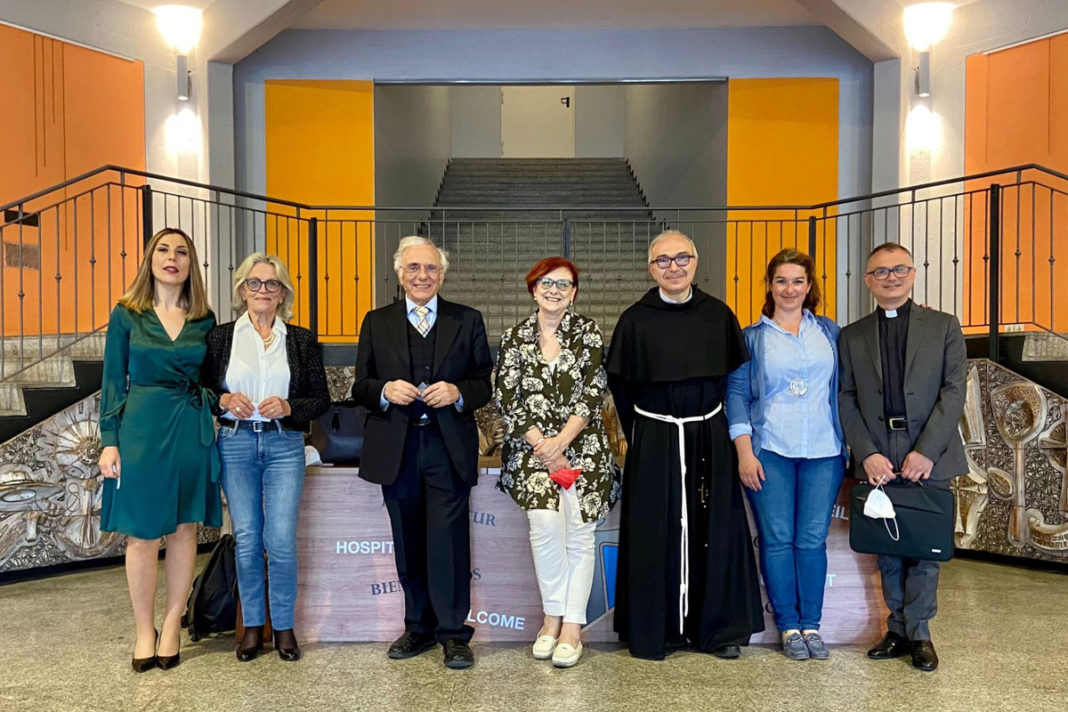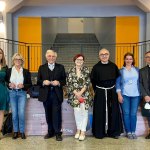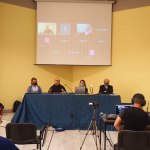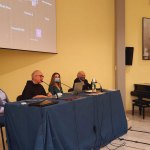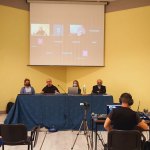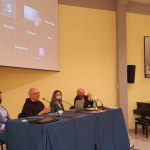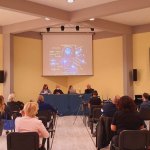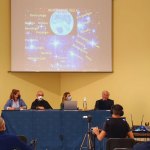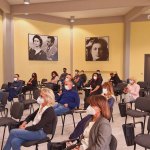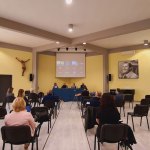At 3:00 p.m., on Saturday May 22, 2021, the Graphology Department of the Pontifical Theological Faculty of St. Bonaventure (Seraphicum) in Rome, conducted an “open day” seminar. The event was presented in the Sixtus V Hall by the Dean of the college, Friar Raffaele DI MURO.
The seminar took place in two forms: in person and online. There was lively participation from both the students of the Graphology Department and a number of other people interested in the event.
In his introductory remarks, Friar Raffaele quoted Dr. Alessandra MILLEVOLTE, who was present at the meeting. During a recent interview, she had given an interesting definition of the discipline of graphology, calling it “electroencephalography”, since the movement of writing can indicate what is happening neurologically, physiologically and psychologically, revealing the totality of the person. The Dean of the Faculty also spoke about the late Friar Girolamo MORETTI, OFM Conv., who initiated graphological study and research in Italy.
The floor was given to the faculty, with a brief introduction by Dr. Nadia BONANNO, who outlined the purpose of graphology, namely, to intercept individuality, meaning the unique and original personality of a particular person’s handwriting, as if it were a “graphic fingerprint,” typical of the individuality of the subject as a whole. This was followed by a presentation by Dr. Chiara MISTRORIGO who quoted Diderot: “A man’s gestures are metaphorical.” As a metaphor, handwriting contains information that closely refers to the writer, showing his personality, his concrete being, as he goes about his daily life. Dr. Vincenzo TARANTINO discussed the study of the neuroscience involved in writing and the particular tools that allow one to authenticate writing and avoid forgery. Dr. Carlo CACCIARI outlined pastoral graphology through the study of the twelve passions of man and how these relate to the seven deadly sins, culminating in the study of the handwriting of the saints. Dr. A. MILLEVOLTE explained the importance of graphology in the service of human resources. After some questions posed to the speakers by the audience, the event ended around 6:00 p.m.
Special thanks to the speakers for their service and contribution and to all those who attended this important event, either in person or online.
Friar Salvatore M. ROBUSTELLI






